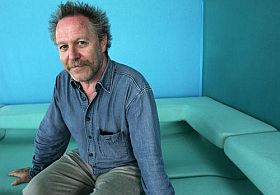


Nicolas Philibert: Imagination takes flight

This text is taken from the site of the Finnish documentary film festival Docpoint, that goes on 26-31.1.2010:
I never made the decision to become a documentarian, to place myself in some fixed category. I don’t even like the word “documentarian”. The term is an attempt to give a strict definition to a genre known for its porosity and constantly evolving boundaries; a genre that is almost inseparable from the one it is always opposed to: fiction. After all, images are not as true to ”reality” as they are to the intentions of their creator.
Nevertheless, my first film was a documentary (His Master’s Voice, 1978) and it made me want to make another one and another one, and I’m still as excited as ever. So I have become a documentarian and, although I dislike the word, nothing has managed to quench my thirst for filming; not the efforts needed to get a project started and surmount one’s demons nor the threats that hang over the existence and circulation of one’s most personal works.
I feel the need to create a frame for each film, a starting point that I can build upon. This frame consists of the things that I find motivating and exciting when working together with the subjects of the film. When filming starts, the final destination is unknown to me and I don’t know which path I will follow. A
lot depends on the things that emerge through work and encounters. Naturally the journey is different with each film.
Movies always tell something else than what was expected of them and maybe it’s better that way. When I started filming Every Little Thing at La Borde psychiatric clinic, I would have had great difficulty defining the subject of the film. Actually, I still don’t quite know what it is. It is not so much a film about La Borde than a film made because of La Borde. I hesitated before starting to make it… When you are holding a camera, you have power over others. It is essential to know how not to abuse this power. When I decided to make this film, it was to confront my fears and hesitations, all these things that were holding me back. Thus the subject in itself is not as important as the questions that the film evokes in me.
When I start making a film, I inform myself as little as possible. The less I know, the better it goes. Besides, if I know too much about a subject, I’m no longer interested in making a film about it. The idea of making a film from an omniscient point of view is completely foreign to me. I prefer to build upon not knowing. Louvre City is a good example of this: there is not a word of commentary in the film, although the co-producers wanted to add it. When making In the Land of the Deaf, I had decided to dive straight into the oddity of sign language, without an interpreter or other outside help. At first, I felt lost… However, I had decided not to consult experts or doctors or educators. If I had approached the subject that way, the deaf would have felt they were being filmed as research subjects.
Movies must hold their secrets and leave questions unanswered. Shady areas, words left unsaid, the interplay between what is shown and what is not, what is told and what is left to be assumed, invisible parts, reluctant characters; all this moves the viewer and shakes up his or her thoughts and prejudices, allowing imagination to take flight. When everything is smooth, familiar, transparent, tame, soothing and without any roughness or obstacles, there is no story to be told, only stagnation.
Translation by Heini Lilja